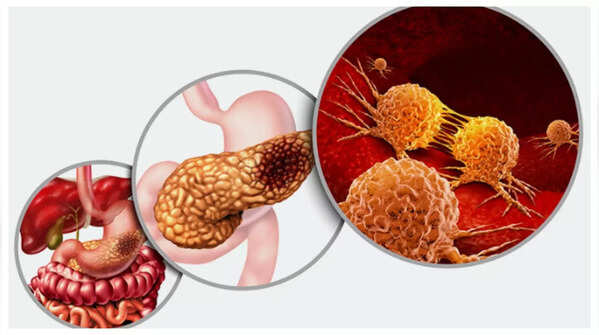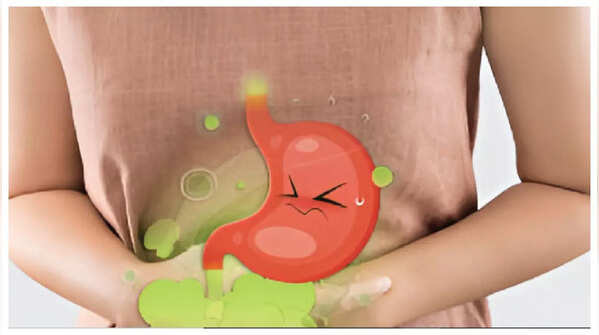
1/6
5 early signs of Pancreatic Cancer that are easy to ignore
Pancreatic cancer is a disease in which malignant (cancer) cells form in the tissues of the pancreas. The pancreas is a gland located behind the stomach that produces hormones like insulin and enzymes that aid in digestion. Unfortunately, the condition is usually not diagnosed at an early stage, and late stage prognosis remains extremely poor. To avoid this, it is important to detect pancreatic cancer early, as a late diagnosis is usually terminal. Here are 5 early signs of pancreatic cancer that most people overlook...

2/6
Jaundice
One of the most common early signs of pancreatic cancer is jaundice, which causes the skin and the whites of the eyes to turn yellow. This happens when a tumor blocks the bile duct, causing a buildup of bilirubin, a yellow substance made by the liver.
Along with yellowing, jaundice can cause:
Dark urine that looks brownish
Light-colored or greasy stools that may float due to poor fat digestion
Itchy skin caused by bilirubin buildup under the skin
Because jaundice can also be caused by other conditions like gallstones or liver problems, it’s easy to ignore or misattribute. However, if you notice these symptoms, especially yellowing of the eyes or skin, it’s important to see a doctor promptly for evaluation. When not connected with cancer, jaundice is usually completely treatable without any long term complications.

3/6
Unexplained Weight Loss
Weight loss is common to all cancers, and sudden, unexplained weight loss is a warning sign that something may be wrong in the body. In pancreatic cancer, weight loss often occurs because the tumor affects digestion or causes a loss of appetite. You might find yourself eating less or feeling full quickly, even if you haven’t changed your diet. This can happen because pancreatic cancer can reduce the production of digestive enzymes, making it harder to break down food properly. Since weight loss and poor appetite can result from many causes, including stress or other illnesses, they are easy to overlook.

4/6
Abdominal or Back Pain
Pain in the upper belly or middle back is a common symptom but often dismissed as indigestion, muscle strain, or other minor issues. In pancreatic cancer, this pain happens when the tumor presses on nearby organs or nerves.
The pain may:
Come and go or be constant
Feel dull or aching
Worsen when lying down and improve when leaning forward
Because abdominal or back pain is common and can be caused by many conditions, people often ignore it or treat it with over-the-counter painkillers. However, persistent or unusual pain should never be ignored and should be discussed with a doctor.

5/6
Fatigue and Weakness
Feeling very tired or weak without a clear reason is another early sign that can be easy to dismiss. Fatigue related to pancreatic cancer is not caused by physical activity and does not improve with rest, even with a full night's sleep. This kind of fatigue may be linked to the body’s response to cancer, changes in metabolism, or other effects of the tumor. It can also be accompanied by difficulty sleeping or feeling low in mood. Since fatigue is quite common, stemming out of tiredness, lack of sleep or even too much physical labour, this symptom too is quite easy to overlook.

6/6
Digestive Problems
Pancreatic cancer can affect digestion by blocking parts of the digestive system or reducing enzyme production. This can cause symptoms such as:
Nausea and vomiting, especially after eating
Feeling bloated or full quickly, even after a small meal
Changes in bowel movements, including diarrhea or constipation (or both)
Stools that are pale, greasy, or float due to poor fat absorption
These symptoms are often mistaken for common digestive issues like indigestion or irritable bowel syndrome. Because they are mild or come and go, it is easy to ignore them. However, if they persist, one should get help right away.
Disclaimer: This article is informational only and not a substitute for medical advice. Always consult a medical professional if you experience any of these symptoms
Follow Us On Social Media

 19 hours ago
49
19 hours ago
49




























 English (US)
English (US)